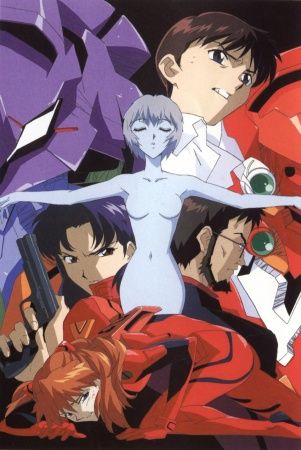Neon Genesis Evangelion English Dub Download
Select your episode from Neon Genesis Evangelion Anime in High Quality with English Dubbed Online for free or You can Download Neon Genesis Evangelion in 480p Quality or 720p. If you enjoy Neon Genesis Evangelion please share Animeselect to your friends. Nov 13, 2013 - Evangelion 1.11 You Are (Not) Alone (720p Blu-ray eng dub 8bit AAC MP4). Blu-ray eng dub 8bit. English dubbed version. Download: Link. Neon Genesis Evangelion Series??? + Unknown if.
Here's a list of DIRECT DOWNLOAD ENGLISH DUBBED ANIME. Enjoy! (They're available through Rapidshare, Megaupload, Mediafire, and Direct Download).
#
A
B
C
D

E
F
G
Neon Genesis Evangelion Dub
H
I
Watch Neon Genesis Evangelion English Dub
J
K
L
M
N

O
P
Q
R
S
T
U
V
W
X
Y
Z
For more ENGLISH DUBBED ANIME DOWNLOADS, I suggest going to Animepalm!

Animepalm has hundreds of ENGLISH DUBBED ANIME DOWNLOADS, ENGLISH DUBBED ANIME STREAM EPISODES, and ENGLISH DUBBED MOVIES, available on MEGAUPLOAD, RAPIDSHARE, MEDIAFIRE, and DIRECT DOWNLOAD.
Here's a link: http://www.animepalm.com/
Enjoy all your favorite ENGLISH DUBBED ANIME Series!
* Your list is public by default.
Alternative TitlesEnglish: Neon Genesis Evangelion Japanese: 新世紀エヴァンゲリオン InformationEpisodes: 26 Aired: Oct 4, 1995 to Mar 27, 1996 Broadcast: Wednesdays at 18:30 (JST) Producers:TV Tokyo, Kadokawa Shoten, Nihon Ad Systems, Audio Tanaka Studios:Gainax, Tatsunoko Production Genres:Action, Dementia, Drama, Mecha, Psychological, Sci-Fi Rating: PG-13 - Teens 13 or older StatisticsRanked: #2192 2 based on the top anime page. Please note that 'Not yet aired' and 'R18+' titles are excluded. Members: 750,444 |
|